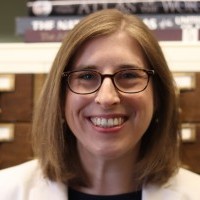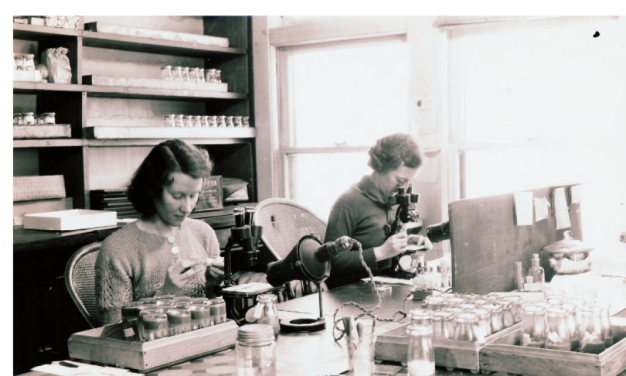APS Library Announces Pilot Program in the History of Science
The APS Library is pleased to announce a one-year pilot program in the History of Science. The program encourages scholars to make greater use of the Library’s holdings in the history of science, technology, and medicine through new fellowships, and to share their discoveries with the wider world through seminars, conferences, publications and other events.
As part of this program, in Fall 2019 the Library will launch three one-year predoctoral and sabbatical fellowships for scholars working on projects in the history of science, technology, and medicine. Each fellow will receive a stipend and work space at the APS, where they will join a rich intellectual community of staff and other fellows-in-residence. Fellows also will be affiliated with the Philadelphia-based Consortium for History of Science, Technology, and Medicine (https://www.chstm.org/).
The history of science will be prominent in the Library’s upcoming programming in 2019-2020. For example, in January, prize-winning author Nick Bunker will share accounts of Benjamin Franklin’s early scientific experiments in a public lecture on his book, Young Benjamin Franklin: The Birth of Ingenuity. On June 6-7, 2019, the APS will host a symposium on “Networks: The Creation and Circulation of Knowledge from Franklin to Facebook.” The event is inspired by the Society’s recent digitization of Benjamin Franklin’s postal records and by its involvement in “The Cybernetics Thought Collective: A History of Science and Technology Portal Project.” In the fall, the Library will hold an interdisciplinary conference exploring the power and politics of maps and borders in shaping the Early Republic. The Library will also host a history of science lunchtime seminar on the second Tuesday of the month.
The program is based upon the Library’s extensive holdings in the history of science. Well over half of the approximately 13 million pages of manuscript and archival material at the APS, is in the history of science. These materials run the gamut from A to Z—from astronomy to zoology—and are particularly strong in genetics, evolutionary biology, and the life sciences. Other notable collections document the history of science in early America, eighteenth- and nineteenth-century natural history, physics and mathematics, and the early history of computing. The Library has the papers and correspondence of notable early scientific figures including Benjamin Franklin, William Bartram, and Charles Willson Peale, as well as those of seven Nobel Laureates, such as the Philadelphia-based Baruch Blumberg and the pioneering geneticist Barbara McClintock. It contains the largest holding of Charles Darwin manuscripts outside of England and among the largest collection of works by Darwin in the world. More recently, many historians of science have also given their papers to the APS.
For further information about the program and to learn more about the Library’s history of science collections, please visit https://www.amphilsoc.org/program-history-science.
Additional questions and contact regarding this program may be directed to Adrianna Link, Head of Scholarly Programs at [email protected] or at 215-440-3415.


